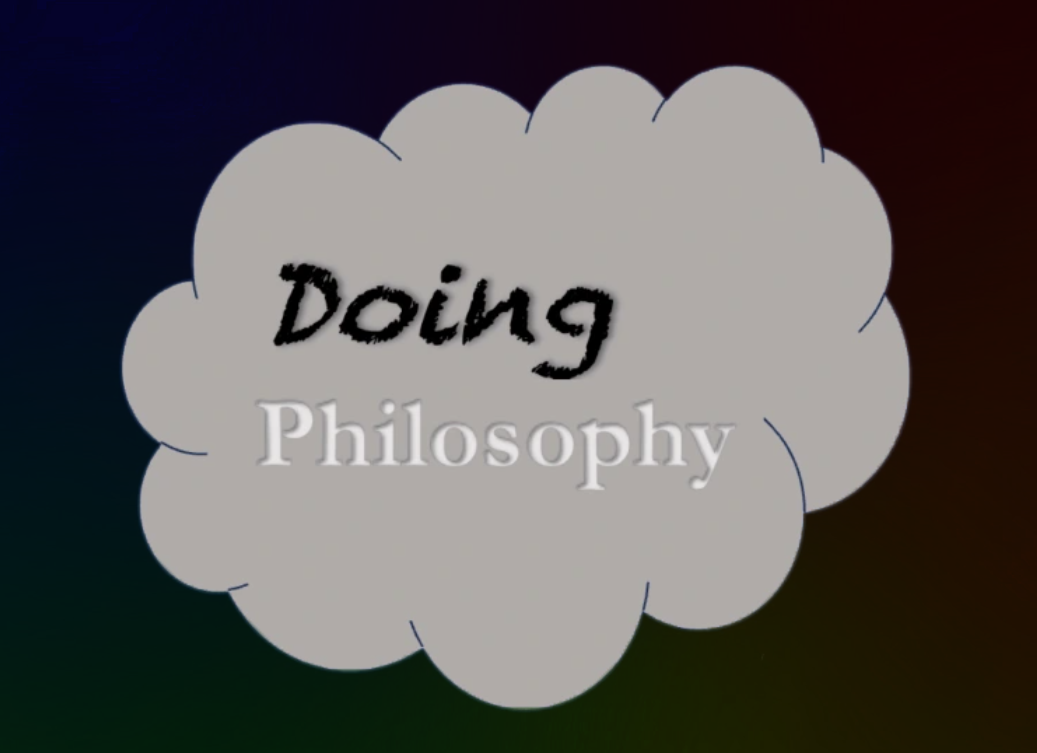philosophy
The eighth day of creation: how the new cultural technologies take us into the posthuman
In Fully Automated Luxury Communism (2018), the British writer Aaron Bastani puts a leftist spin on the Promethean view of technological development. While noting the revolutionary potential of recent genetic innovations, he insists that the latter are no different in kind from the selective breeding practices of the past: they are simply another great leap forward in humankind’s mastery over unruly nature. Referring to the movie Elysium (2013), which depicts a world where biotechnologies are only available to the very rich, Bastani’s only political concern is whether the new genetic technologies will be privately or socially owned. All other questions are beside the point, at least as far as he is concerned. As he puts it, with alarming insouciance: ‘Before editing the human genome at scale such efforts should be subject to vigorous public debate. But how much difference is there between improving nutrition for health outcomes and optimising our biological programming? Not much’. [More here.]
Big Tech goes ballistic
A month or so out from Christopher Nolan’s much-anticipated biopic Oppenheimer, the Artificial Intelligence (AI) community is having its own Oppenheimer moment. Like the director of the Manhattan Project and Los Alamos Laboratory, who famously came to regret his part in the development of the atomic bomb, the Big Tech Titans are falling over each other to declare themselves ‘the destroyer of worlds’. Open letters and statements, high-profile resignations, and appearances before the US Senate are just a few manifestations of this collective show of soul-searching. The tech bros have unleashed their creations on the world, and now they are demanding to be put on the leash. [More here.]
A review of Rai Gaita’s Justice and Hope
As philosopher and broadcaster Scott Stephens suggests in his introduction to Justice and Hope, Raimond Gaita’s principal contribution to the practice of moral philosophy is to have opened it up to readers and audiences that wouldn’t usually encounter it.
Most notably in his memoir Romulus, My Father (1998), but also in A Common Humanity (2000) and The Philosopher’s Dog (2002), he has found a language in which to address the question of what we owe to one another that is free from the bloodless, esoteric jargon of academic philosophy. [More here.]
Here Be Media
A talk to the Economic Society of Australia: Monsters in the Machine, Technology, Growth & Human Flourishing
An Author Talk with Goldfields Libraries
An appearance on the Breaking the Spell podcast
Animal Sovereignties and the Wolves of Isle Royale
The biggest challenge posed by the question of wild animal sovereignties is to the operation of human sovereignty, which itself is figured through animality and in some cases through animals....
New Podcast: Doing Philosophy (plus: Confidence in Philosophy)
“You shouldn’t be super confident in philosophy.”

That’s Crispin Wright (NYU/Stirling) in the fourth episode of a new podcast, Doing Philosophy, created by Tom Kaspers, who recently obtained his PhD in philosophy from the University of St. Andrews.
The podcast is trying out (what seems to me) a novel format: an early-career philosopher discusses the topic of one of their own articles with a relatively senior philosopher, in a conversation helped along with questions and moderation from the show’s host.
Kaspers is both the host and early-career philosopher in the first four episodes, which try out the format. He discusses a few of his articles with Wright, Huw Price (Cambridge), and Sanford Goldberg (Northwestern). He hopes to be just the host in future episodes.
So if you’re an early career philosopher who’d like to be on a podcast featuring a philosophical conversation on the topic of an article of yours, and you have in mind a relatively senior philosopher you think would be interested in taking part in that conversation, get in touch with Kaspers at tomvkaspers@gmail.com.
In the episode quoted at the start of this post, Wright continues:
I’m always distrustful of philosophers who think there are definite mistakes in some views, beyond the pale. How could you think that just sociologically, when you’re confronted with examples of very skillful, respectful philosophers holding views which you can’t see off, but that strike you as dotty.
One of the most traditional benefits of philosophy, according to Socrates, is coming to realize how little you know. And I would qualify the expression of that: coming to realize that in philosophy you can be confident that you have the right opinion about very little. Or the best opinion about very little. There’s always an antagonism and a trained skilled philosopher can always construct a case which you find uncongenial. Williamson on vagueness, Lewis on modality, Graham Priest on contradiction. All of these views are, as I’ve put it before, dotty, in my opinion, but nevertheless you have to be impressed by the way in which they defend it. That’s good philosophy. I think it’s valuable to know that that can happen and is likely to happen about any particular philosophical issue. That’s a kind of wisdom and it’s in keeping with Socrates’s thought that the views you’re attracted to are matched by views you find unattractive but that are as well or better defended. That’s a truth of sorts.
I don’t think we’re describing [in philosophy]… There’s no reality that is already philosophically determinate which we’re starting to articulate. I guess this is pragmatism. I think we’re feeling our way into the shape of a view, a set of proposals, with which we’re comfortable, and which resolve certain anxieties and singularities. But again, it will be a value judgment. But it may be that there is no account with which everyone feels totally happy. That there are always tensions and little incoherencies. They are not to be ironed out. It’s just the kind of predicament we have when we try to theorize about concepts which were involved for non-theoretical purposes. And if that’s the case, well that’s well to know. And now you can have a view you prefer to others but which it would be silly to say, ‘This is the right account.’
Doing Philosophy is available on Apple, Spotify, Amazon Music, and elsewhere.
See also the Big List of Philosophy Podcasts.
The post New Podcast: Doing Philosophy (plus: Confidence in Philosophy) first appeared on Daily Nous.
Journalists and Philosophy
“Why is that philosophy is glaringly absent in Indian newspaper journalism that otherwise seamlessly synthesises ideas from numerous disciplines while discussing a topic?”

That question is raised by Varun S. Bhatta, Assistant Professor of Philosophy at Indian Institute of Science Education and Research Bhopa, in a piece at The Wire. The question isn’t confined to journalism in India. He notes: “The non-engagement with philosophy is a characteristic of journalism across the world.”
Though newspapers publish opinion pieces by philosophers, what Bhatta is interested in is the question of why journalists themselves do not bring philosophy into their reporting, as they do with research and ideas from other disciplines. He asks: “Are there any pragmatic constraints of the profession that filter out philosophical ideas? What presumptions of journalists about philosophy are at play here?”
To find out, he asks journalists and news editors. They cite that journalists are largely unfamiliar with philosophy and so don’t think to bring it to bear on the subjects on which they’re reporting. Jargon and perceived abstractness and difficulty are other reasons journalists may be “antagonistic” towards philosophy.
He notes that philosophers may not be thought of as experts, as philosophy is “presumed to study everyday activities and phenomena.”
So philosophy is at once perceived as, on the one hand, specialized, daunting, and irrelevant, and on the other, quotidian and not worth mentioning.
Further, journalism “has gradually come to use social science methods and ideas to make sense of news.” He writes:
Given that humanities is on the periphery of journalism’s coverage radar, philosophy events will hardly be considered newsworthy. More importantly, having evolved to use social sciences techniques, journalism would not be interested in queries for which philosophy can provide answers.
The reasons for this, he notes, may have to do with the education and training journalists get. Philosophy isn’t explicitly covered in most journalism curricula, and few people who study philosophy take up careers in journalism. As one American journalist said in a comment on a different post here: “Candidly, I think most people in my profession don’t understand philosophy”
Bhatta concludes that “For philosophy to eventually be used in mainstream journalism practice, journalists need to become familiar with it.” Suggestions on how to make that happen, and general discussion on the topic of philosophy in journalism, are welcome.
UPDATE: Professor Bhatta shares that one of the journalists he spoke with, Vasudevan Mukunth, has posted their entire exchange on his website, here.
Related: “How Should Philosophers Talk to Journalists?”
The post Journalists and Philosophy first appeared on Daily Nous.
Maley Wins Herbert A. Simon Award
The executive board of the International Association for Computing and Philosophy (IACAP) has selected Corey J. Maley, associate professor of philosophy at Purdue University, as the winner of its 2024 Herbert A. Simon Award for Outstanding Research in Computing and Philosophy.

The Simon Award “recognizes scholars at an early stage of their academic career whose research is likely to reshape debates at the nexus of Computing and Philosophy.”
The board recognized Professor Maley for his work on the nature and varieties of computation. They write:
He is currently working on a theory of computation that is broad enough to incorporate distinct types of computation as species (i.e., both digital and analog) in both artifacts and natural systems (i.e., engineered systems and neural systems). At the same time, this theory needs to be narrow enough to avoid making everything computational, or making computation a mere matter of perspective. Finally, this theory should make clear what the various types of computation have in common such that they are all of the same genera, yet distinct enough to count as separate species of that genera. Much of this project has been informed by Corey’s research into analog computation, which is not (as is commonly thought) essentially about continuity. Revealing the differences between analog and digital computation, as well as their similarities, has illuminated what aspects of computation are specific only to digital computation, and not necessary features of computation in general.
As part of the award, Professor Maley will present the Simon Award Keynote Address at the IACAP 2024 conference this summer in Eugene, Oregon.
You can a list of previous winners of the Simon Award here.
The post Maley Wins Herbert A. Simon Award first appeared on Daily Nous.
The world of bullshit we’ve built: Reflections on a scene from Utopia
I recently took my son to the stage play of Yes, Prime Minister. … The decades have made a huge difference in the sensibility of the new production … . The series ran through most of the 1980s, a period that contained its share of tumult. … But somehow the dramas were genteel, reflecting battles between those privileged enough to be in the system. Waste in government continued, powerful people and time-servers were protected when they should have been exposed and dealt with. But one could be forgiven for thinking, at the end of an episode, ‘it was ever thus’. 1 on, as the moral dilemmas piled up in the stage-play, the governors conspired against the governed.
It’s hard to put one’s finger on it, but to speak loosely, I’d say that when I joined the workforce fifty-odd years ago, life inside that workforce was about 80% the lifeworld — just getting on with people, doing one’s job whatever it was. I was in Canberra and got a holiday ‘bridging’ job in the ACT over the summer hols. I was part of a small team administering rebates to people on their public housing rent for various reasons of need. (Rosemary who I was assisting was a very nice person and had loved being a nurse. She didn’t love this, but it was OK and it paid better.) In any event, although it was administrative, it was still a concrete system, not unlike running public transport or a newsagent. At least inside the beast, you could tell whether anything too silly was being done.
The other 20% was, if you like ‘the system of the system’ which hierarchies are preoccupied with. Reports to superiors and so on, though given how concrete what one was doing was, this worked reasonably well. I guess it wouldn’t be hard to find stories of fairly comprehensive waste to protect some superior’s view of things. But there was little high farce of the kind so beautifully sent up in Utopia.
I’d never accuse this world of being ‘high performing’. It was quite mediocre, but it was human, it muddled through, one wasn’t encouraged to have tickets on yourself. There was a tea lady of some standing who came round every morning and afternoon. Nor do I want to suggest that such an office wouldn’t contain antagonisms — perhaps quite deep ones. But there was quite an ethic of getting on and helping out. And that contributed to a deep kind of egalitarianism. Seniority was respected but not fawned over. And commonsense was a strong anchor in life.
Fast forward to today and the degree of farce is just off the charts. At the tail end of the world I’m describing, we did away with national anthems beginning movies and toasts to the Queen at the very most pompous events. Now everything is populated with new pieties. Each meeting — often each speech given at a function — is preceded by an acknowledgement of country. People are constantly involved in farcical activities — of the kind satirised in Utopia.
Almost certainly their workplace operates with a whole anti-thinking apparatus up in lights — mission and vision statements and ‘values’ statements. If you’re at one of these events it is not a good move, for your blood pressure, your self-respect or your career to say that you don’t think that the values of an organisation can be written in a list hung in the foyer — that values aren’t like that. That values might have names in our language, but they are present in our lives as choices.
Now even after fifty years of development such things still don’t take up that much time. But they are central to the official governance of the organisation. I don’t think of them as causes so much as symptoms of something much deeper. They’re the tip of a large iceberg in which;
- What is said and what is done within and by organisations are able to float pretty much freely away from each other;
- There was always plenty to object to in the worlds of mainstream politics and media, but today they are mostly infantile — including most ‘quality’ media coverage of politics which is glorified racecalling.
- Government reports are full of bland-out — pleasing words “improve”, “reform”, “sustainable”, “accountable”, “transparent” and on and on, and only someone who wasn’t paying attention thinks those words mean what they say. They could mean what they say, they could mean the opposite. Unless I’m deep in some issue, I don’t read government reports because they can’t be understood without being an insider. The same goes for corporate reports. And come to think of it, would you get much more than a fairly predictable schtick from the annual report of a major NGO?
- Back then, discrimination on the basis of race, ethnicity, gender or sexual orientation could live a fairly robust existence within the ‘commonsense’ of the workplace and this was obviously a very bad thing. So in major respects things are better than that today. We also go after things like bullying in the workplace. And there’s a lot of it about. So going after it is certainly a laudable goal. But it’s a very difficult goal and we don’t proceed as if it were. The upshot is that we’re giving lots of power to people who can game such systems — bullies in fact. Should we give up on anti-bullying? I’d hope we wouldn’t need to, but I think it’s quite likely that — perhaps after a few years where the new arrangements help a little — the systems become gamed by bullies so badly that they do more harm than good. Have we set these systems up to help us know if things are going awry? Nope. We’ve set them up as we always do — as elaborate role plays with accountability theatre to the higher-ups. What could possibly go wrong?
- These dot points are just that — a few scattered thoughts. Many more phenomena could be itemised — perhaps I’ll do that as they occur to me.
I won’t claim to be able to articulate it much beyond what I’ve said here. It’s bugged me that I can’t do better for ages, but watching the Utopia clip above spured me to note it, because, it’s trying to make a similar point.
- A generation
Taylor Swift: The Modest Proposal
And so the working hypothesis of this proposal is: that only art with an awareness of finitude constitutes meaningful composition. ...